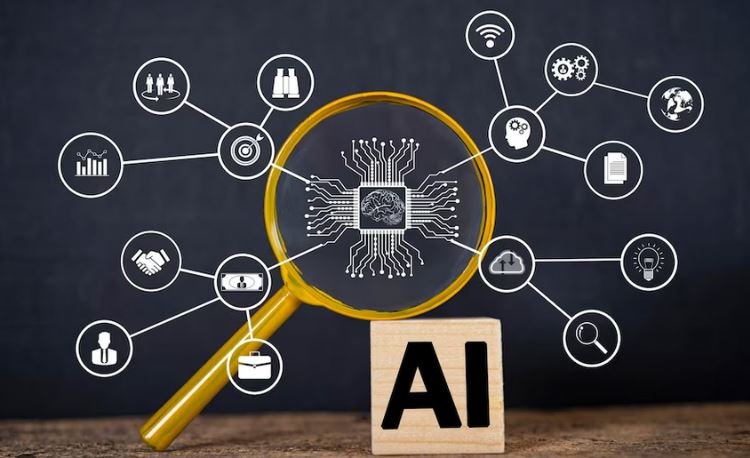The role of AI in advertising has become increasingly important as businesses seek innovative ways to connect with consumers. Artificial intelligence has revolutionized how companies create, distribute, and measure their ads. Through data-driven insights and advanced algorithms, AI allows advertisers to optimize their campaigns for better targeting and more engaging content.

1. Enhancing Personalization Through AI
A major role of AI in digital marketing is its ability to enhance personalization. Consumers today expect ads tailored to their preferences, and AI makes this possible by analyzing vast amounts of user data. Through machine learning, AI can identify patterns in consumer behavior, such as past purchases, search history, and online interactions, to create hyper-targeted ads.
Personalized ads increase engagement because they resonate more with the audience. For example, AI can help e-commerce brands recommend products that align with an individual’s browsing history, making the ads more relevant and effective. This level of personalization improves click-through rates and increases the likelihood of conversions, ultimately boosting the campaign’s ROI.
2. Optimizing Ad Spend and Performance
Another key role of AI in advertising is optimizing ad spend. Traditionally, advertisers faced challenges in determining where to allocate their budget for the best results. AI solves this by analyzing data in real-time, allowing advertisers to adjust campaigns based on performance.
AI-powered tools can predict the success of different ads across platforms, identifying which ones yield the best return. This data-driven approach ensures that businesses invest their resources wisely, reducing waste and improving overall efficiency. Additionally, AI can automate ad bidding, adjusting prices based on audience demand and competition, ensuring that advertisers get the best possible deal.
3. Improving Audience Targeting
Accurate audience targeting is another critical role of AI in advertising. AI allows marketers to target specific demographics, behaviors, and interests more effectively than ever before. By segmenting audiences based on detailed criteria, AI helps advertisers reach consumers who are more likely to engage with their ads.
In addition to identifying the right audience, AI also helps determine the best time and platform for ad delivery. Whether it’s social media, search engines, or display networks, AI ensures that ads are shown to the right people at the right time. This precision targeting helps improve engagement rates while minimizing wasted impressions, maximizing the value of each ad placement.
Conclusion
The role of AI in advertising continues to grow as technology becomes more integrated into marketing strategies. From enhancing personalization and optimizing ad spend to improving audience targeting, AI offers businesses the tools they need to create more effective and efficient campaigns. As AI advances, its impact on advertising will only deepen, leading to more innovative and engaging ways for brands to connect with their audiences.




